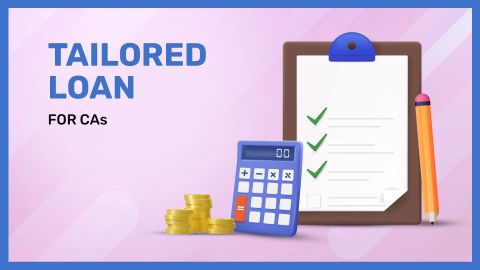Why study ACCA?
Pursuing ACCA (Association of Chartered Certified Accountants) offers significant advantages due to its global recognition, wide career scope, and well-rounded skill development. It is a highly respected qualification in accounting and finance that prepares professionals to perform effectively across international markets.
Key reasons to choose ACCA:
- Global Recognition and Mobility: Accepted in more than 180 countries, enabling strong international career prospects.
- Wide Range of Career Paths: Covers areas such as auditing, taxation, financial management, and strategy, leading to roles like Auditor, Financial Analyst, Finance Manager, or even CFO.
- Strong Earning Potential: ACCA professionals are in high demand and often benefit from competitive salaries and growth opportunities.
- Flexible Learning Structure: Offers adaptable study and exam options suitable for both students and working professionals.
- Development of Critical Skills: Emphasises ethics, leadership, analytical abilities, and strategic decision-making.
- Global Professional Network: Connects learners to a worldwide community of accounting and finance experts.
- Ongoing Professional Development: Ensures members stay updated with evolving industry standards and practices.
Overall, studying ACCA provides a globally relevant, future-ready foundation for a rewarding and successful career in finance.
Who should study ACCA?
ACCA is suitable for:
- High school students: Those interested in building a career in accounting can start early with ACCA. Its flexible structure helps learners explore opportunities both within and beyond traditional accounting roles.
- Graduating students: Individuals pursuing degrees such as B.Com, BBA, BMS, or even BA/B.Sc can boost their career prospects with ACCA. It enhances employability, provides faster career progression, and is especially valuable for roles in multinational organisations.
- Experienced professionals: Working professionals in finance or accounting—including those who have completed qualifications like CA—can opt for ACCA to gain global recognition, broaden their expertise, and access international career opportunities.
ACCA eligibility
For 10+2 students:
Age: Minimum of 18 years old.
Academics: Higher secondary education with a minimum of 65% aggregate in Mathematics/Accounting and English, and a minimum aggregate of 50% in all other subjects.
For graduates:
Commerce stream: Graduates with a B.Com, BBA, or BMS degree are eligible.
Non-commerce stream: Graduates with a BA or B.Sc. degree from a recognized university are eligible, provided they complete the ACCA Foundation diploma as a prerequisite.
Alternative entry for those who don't meet the 10+2 criteria:
Important to note:
ACCA Admission
ACCA students can enrol after completing class 10. However, they must first complete a Diploma programme before moving on to the main ACCA curriculum, which consists of 13 subjects.
ACCA exams
The ACCA qualification is divided into 3 levels, with exams held multiple times each year. Here is a look at the structure:
The ACCA course involves exams across three levels, ensuring a comprehensive understanding of the accounting profession.
Level
|
Number of Exams
|
Recommended Study Time per Exam
|
Total Study Time
|
Typical Completion Time
|
Applied Knowledge
|
3
|
50–60 hours
|
150–180 hours
|
6–9 months
|
Applied Skills
|
6
|
70–80 hours
|
420–480 hours
|
12–18 months
|
Strategic Professional
|
4 (2 Essentials + 2 Options)
|
90–100 hours
|
360–400 hours
|
12–18 months
|
Total
|
13
|
210–240 hours
|
930–1,060 hours
|
30–45 months (2.5–3.75 years)
|
Candidates can take these exams in 4 sittings per year (March, June, September, December), giving them flexibility to pace their studies.
ACCA PER Requirements
The ACCA Practical Experience Requirement (PER) is a core component of becoming a fully qualified ACCA member. It ensures candidates gain real-world, hands-on experience that complements their exam learning. To meet the PER, an individual must complete 36 months of relevant practical work experience in roles related to accounting, audit, finance, or business. Experience can be gained before, during, or after completing ACCA exams, offering flexibility for students and working professionals.
Candidates must also achieve nine Performance Objectives, which are divided into five Essentials (including ethics, professionalism, stakeholder management, and governance) and four Technical objectives selected based on the candidate’s role. These objectives are verified and signed off by a qualified workplace mentor or supervisor who can assess the candidate’s competence.
In addition, candidates must regularly record their experience in the ACCA online MyExperience portal. Meeting the PER ensures ACCA members demonstrate strong technical capability, ethical behaviour, and professional judgment.
ACCA exemptions
Students holding certain qualifications can claim exemptions from specific ACCA exams. The exemptions are as follows:
Passing Class 12:
Students who have completed Class 12 are exempt from ACCA’s Foundation Diploma, which is intended for learners without any formal academic background.
Completing BCom or MCom:
Graduates with a BCom or MCom degree receive exemptions from the ACCA Knowledge-level exams—Business & Technology (BT), Management Accounting (MA), and Financial Accounting (FA). They are also exempt from the Corporate and Business Law (CBL) paper at the Skills level.
Clearing Chartered Accountancy (CA):
Candidates who have completed CA receive exemptions for 9 out of 13 ACCA papers. This means both the Knowledge and Skills levels are fully exempt, leaving only the four Strategic Professional exams to be completed.
Clearing CA IPCC:
Students who have passed CA IPCC need to appear for 8 ACCA exams. They receive exemptions for 4 papers, including Business & Technology (BT), Management Accounting (MA), Financial Accounting (FA), Taxation (TX), and Audit & Assurance (AA).
ACCA exam dates
The ACCA exams for 2025 were held during four main sessions in March, June, September, and December, typically running from Monday to Friday of the specified week.
The specific dates for the 2025 exam sessions were:
Session
|
Exam Dates
|
March 2025
|
March 3–7, 2025
|
June 2025
|
June 2–6, 2025
|
September 2025
|
September 1–5, 2025
|
December 2025
|
December 1–5, 2025
|
For specific exam entry and result release dates, candidates were advised to check their myACCA account on the official ACCA website, as these deadlines have passed for the 2025 sessions.
Note: Applied Knowledge level exams (BT, MA, FA, and some LW variants) were available as on-demand computer-based exams throughout the year, independent of the session dates above.
ACCA syllabus
The ACCA syllabus covers a broad range of subjects across accounting, finance, auditing, taxation, and business management. Each paper is designed to build strong technical and professional skills.
ACCA Level
|
Exam
|
Subject
|
Description
|
Applied Knowledge
|
Business and Technology (BT)
|
Business and Technology
|
Introduces the business environment, organisational functions, technology, and management concepts.
|
|
Management Accounting (MA)
|
Management Accounting
|
Covers key management accounting principles, including costing, budgeting, and financial analysis.
|
|
Financial Accounting (FA)
|
Financial Accounting
|
Provides the foundation of accounting, double-entry principles, and preparation of financial statements.
|
Applied Skills
|
Corporate and Business Law (LW)
|
Corporate and Business Law
|
Explains core concepts of business, contract, and corporate law.
|
|
Performance Management (PM)
|
Performance Management
|
Focuses on performance evaluation techniques and decision-making tools.
|
|
Taxation (TX)
|
Taxation
|
Covers tax frameworks and the computation of tax liabilities.
|
|
Financial Reporting (FR)
|
Financial Reporting
|
Teaches preparation and interpretation of financial reports using global accounting standards.
|
|
Audit and Assurance (AA)
|
Audit and Assurance
|
Introduces auditing fundamentals and the role of assurance in financial reporting.
|
|
Financial Management (FM)
|
Financial Management
|
Covers essential finance topics, including investment decisions, risk, and sources of finance.
|
Strategic Professional
|
Essentials
|
Strategic Business Leader (SBL)
|
An integrated case-study exam assessing leadership, governance, risk, and strategic decision-making.
|
|
|
Strategic Business Reporting (SBR)
|
Advanced financial reporting with emphasis on analysis and stakeholder communication.
|
|
Options (Choose 2 of 4)
|
Advanced Financial Management (AFM)
|
Advanced financial strategies, investment appraisal, and risk management.
|
|
|
Advanced Performance Management (APM)
|
Strategic performance measurement and management techniques.
|
|
|
Advanced Taxation (ATX)
|
Complex tax matters, including planning and international taxation.
|
|
|
Advanced Audit and Assurance (AAA)
|
Detailed audit processes, professional ethics, and advanced assurance practices.
|
ACCA course fees
The cost of the ACCA programme includes registration, annual subscriptions, and exam fees. Here is a breakdown of the typical costs involved in pursuing the ACCA qualification:
ACCA Fee Structure (1 GBP = 90 INR)
Particulars
|
Fees (INR)
|
Initial Registration
|
2,700
|
Annual Subscription
|
10,440
|
Knowledge Level
|
22,680
|
Skill Level
|
69,660
|
Professional Level
|
64,170
|
Total
|
1,69,650
|
ACCA Scope
The future scope of ACCA is expanding rapidly due to increasing globalization. As companies deliver products and services across borders, the demand for finance professionals with international expertise continues to rise. Key areas highlighting ACCA’s scope include:
ACCA is recognised in over 180 countries, making it one of the most globally valued accounting qualifications. Many ACCA professionals from India build successful careers abroad in regions such as the UK, Australia, Singapore, and Germany.
Multinational companies operating in India have a strong need for ACCA-qualified talent, as they prefer professionals who understand international accounting standards and can work with frameworks like US GAAP and IFRS.
The career prospects for ACCA members are comparable to those of Chartered Accountants, with opportunities available in more than 180 countries.
ACCA is also increasingly recognised by governments, universities, and organisations worldwide. The body has 7,500+ approved employers and over 80 partnerships with global accountancy institutions, further enhancing career opportunities.
ACCA Jobs
ACCA-certified professionals can take up several key roles across diverse industries. Popular career options include:
Core accounting and audit roles: Accountant, Financial Accountant, Management Accountant, Cost Accountant, Forensic Accountant, Fund Accountant, Internal Auditor, External Auditor
Finance and analysis roles: Financial Analyst, Business Analyst, Treasury Analyst, Budget Analyst, FP&A Specialist, Finance Manager, Finance Business Partner
Senior and leadership roles: Financial Controller, Finance Director, CFO, Audit Manager
Specialised and support roles: Tax Consultant, Compliance Officer, Risk Manager, Accounts Payable/Receivable Executive
Benefits of choosing the ACCA course
Global recognition: ACCA is accepted in over 180 countries, opening doors to international career opportunities.
Career flexibility: Professionals can work across various sectors like finance, consulting, auditing, and taxation.
Enhanced employability: Employers worldwide value ACCA-certified professionals for their strong financial expertise.
Comprehensive curriculum: The syllabus covers accounting, finance, law, and management, giving all-round knowledge.
Networking opportunities: Students and members get access to a global professional community.
Flexibility in study option: ACCA allows part-time, online, or self-paced study to suit individual needs.
Practical experience: The course integrates work experience to build real-world skills.
High salary potential: Qualified ACCA professionals enjoy competitive pay packages globally.
How difficult is the ACCA Exam?
ACCA is not considered a very difficult exam and is generally easier to clear compared to other professional finance and accountancy courses such as CA or CFA. However, it is more demanding than the school or undergraduate-level exams that most students are used to.
ACCA vs CPA
ACCA and CPA are both widely recognised certifications in the finance world. Let us compare the two:
Aspect
|
ACCA
|
CPA
|
Recognition
|
Global
|
Primarily in the USA
|
Exams frequency
|
Quarterly
|
Year-round
|
Duration
|
2-3 years
|
1-2 years
|
ACCA offers broader global recognition, while CPA is more focused on the US market.
ACCA vs CA
Both ACCA and CA are prestigious qualifications, but they differ in terms of scope and duration:
Aspect
|
ACCA
|
CA
|
Scope
|
Global
|
Primarily India
|
Exams
|
13 papers
|
3 levels
|
Duration
|
2-3 years
|
4-5 years
|
While CA is specific to India, ACCA opens up international career paths.





